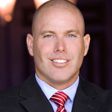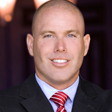Five Ways to Ponzi-Proof Your Retirement
Even seasoned investors can fall prey to a crook, or a financial professional who just isn't very good. So take these measures to protect yourself.


Profit and prosper with the best of Kiplinger's advice on investing, taxes, retirement, personal finance and much more. Delivered daily. Enter your email in the box and click Sign Me Up.
You are now subscribed
Your newsletter sign-up was successful
Want to add more newsletters?

Delivered daily
Kiplinger Today
Profit and prosper with the best of Kiplinger's advice on investing, taxes, retirement, personal finance and much more delivered daily. Smart money moves start here.

Sent five days a week
Kiplinger A Step Ahead
Get practical help to make better financial decisions in your everyday life, from spending to savings on top deals.

Delivered daily
Kiplinger Closing Bell
Get today's biggest financial and investing headlines delivered to your inbox every day the U.S. stock market is open.

Sent twice a week
Kiplinger Adviser Intel
Financial pros across the country share best practices and fresh tactics to preserve and grow your wealth.

Delivered weekly
Kiplinger Tax Tips
Trim your federal and state tax bills with practical tax-planning and tax-cutting strategies.

Sent twice a week
Kiplinger Retirement Tips
Your twice-a-week guide to planning and enjoying a financially secure and richly rewarding retirement

Sent bimonthly.
Kiplinger Adviser Angle
Insights for advisers, wealth managers and other financial professionals.

Sent twice a week
Kiplinger Investing Weekly
Your twice-a-week roundup of promising stocks, funds, companies and industries you should consider, ones you should avoid, and why.

Sent weekly for six weeks
Kiplinger Invest for Retirement
Your step-by-step six-part series on how to invest for retirement, from devising a successful strategy to exactly which investments to choose.
Most investors worry about losing their money to the market — not to their financial professional.
They assume the person they hired to manage their nest egg will be trustworthy, capable and always looking out for their best interests. So when they hear about “bad apples” who take clients to the cleaners, they get nervous. And rightly so.
There aren’t that many Bernard Madoffs and Kenneth Starrs out there bilking clients out of billions of dollars, thank goodness. But even everyday investors with average-sized portfolios are in danger of running into scams and schemes that could drain their life savings. And, as with any line of work, there are some financial professionals who just aren’t very good at the job.
From just $107.88 $24.99 for Kiplinger Personal Finance
Become a smarter, better informed investor. Subscribe from just $107.88 $24.99, plus get up to 4 Special Issues

Sign up for Kiplinger’s Free Newsletters
Profit and prosper with the best of expert advice on investing, taxes, retirement, personal finance and more - straight to your e-mail.
Profit and prosper with the best of expert advice - straight to your e-mail.
So how can you be sure your adviser is honest, knowledgeable and doing his or her best to keep your money safe? Here are a few things you can do to protect yourself:
1. Hire a fiduciary.
There are two standards that regulate the financial industry: suitability and fiduciary. A broker who works under the suitability standard must reasonably believe that the recommendations he makes are suitable for the client’s needs; he doesn’t have to disclose conflicts of interests or all the fees involved in a transaction. A fiduciary, on the other hand, has a duty of loyalty and care; he must act in the best interest of his client and be transparent about all fees and conflicts.
The Department of Labor’s recently implemented fiduciary rule requires all financial professionals to use the higher standard when giving retirement advice, but this protection has not been extended to all transactions. Some advisers will switch hats depending on who they’re working for or what they’re working on, so I believe that to avoid confusion, your best bet is to go with someone who is a fiduciary only.
There are several ways to identify if an adviser is fiduciary. One of the best ways is by doing a broker check on Finra’s website at www.finra.org. The broker check will tell you if an individual is an IA (investment adviser) or a registered rep. If the individual is an IA, they are a fiduciary. If they are a registered rep, they are a broker. Unfortunately, in our industry, an individual can be both — the benefit for them to do both is that they are able to collect a commission and wrap their fees, which in our opinion, is a conflict of interest.
Another way to tell that an individual is a fiduciary is that they are fee-based and work for an RIA (registered investment adviser) firm. Their marketing will include a disclosure that states they are working for an RIA.
2. Be sure your money is held by a third-party custodian.
Bernie Madoff was operating under the fiduciary label when he stole billions from his clients. One thing that helped him get away with it for so long is that he did not have a custodian — a financial institution that holds customers’ securities for safekeeping to minimize the risk of theft or loss. And because he had complete control of his clients’ money, he could carry on unchecked. What’s the lesson for investors? Never write a check to an individual or an individual’s firm; it should always be written to that third-party custodian with an account registered in your name — not your adviser’s name or anyone else’s.
3. Tamp down your greed.
Don’t be sucked in by the promises of huge returns sometimes found when investing in private placements. The temptation can be strong to keep investing in something that isn’t registered and performs well initially. We frequently see this in the oil and gas fields and with non-publicly traded real estate investment trusts (REIT). Be disciplined, and know the risks associated with these types of investments. If you are determined to get in, make sure it is a small percentage of your net worth. Retirement is a time to be hitting singles and doubles, not home runs. When you swing for the fences, you’re more likely to strike out. If something sounds too good to be true, be skeptical.
4. Stay vigilant.
Remember: Some of the brightest minds and most sophisticated investors in the world have fallen for Ponzi schemes. One of the challenges of investing is that you often don’t know you’ve made a mistake until it’s too late. This can be especially devastating in retirement, because you no longer have time on your side when it comes to bouncing back from a loss.
Don’t give your adviser free rein over your money, and always look at your statements. When looking at your statements, we recommend checking the titling on the account and making sure it is owned in your name exclusively and confirm that it is being held by a well-known third-party custodian. You should also pay attention to any unusual transactions, including excessive fees and any distributions.
5. Look for a money manager who is GIPS compliant.
The voluntary Global Investment Performance Standards (GIPS) are based on fundamental principles of full disclosure and fair representation of investment performance results. Firms that are GIPS compliant are encouraged to comply with all applicable requirements for any reports, guidance statements, Q&As, handbooks, etc. You can check out a list of GIPS-compliant firms by clicking here.
Of course, the best way to prevent the theft of your money is to get as much education as you can.
I use this analogy all the time: When you were younger and your car needed a repair, you could grab your tools and fix it. Today if your car broke down, you probably wouldn’t be able to take care of it yourself. Cars are just too complicated and expensive. The same is true of the investment world. Thirty years ago, preparing for retirement was much easier. A person likely had a pension as well as Social Security, and investing was much more straightforward than it is today. So, you’re probably going to need help — and that means putting your money and your trust in someone else’s hands.
But that doesn’t mean you should stop paying attention.
If you don’t understand something an adviser suggests, ask questions. If you have a bad feeling about a recommendation, say no. And if you think something isn’t proper, and may even be illegal, get a second opinion.
It’s your right, because it’s your money.
Kim Franke-Folstad contributed to this article.
Profit and prosper with the best of Kiplinger's advice on investing, taxes, retirement, personal finance and much more. Delivered daily. Enter your email in the box and click Sign Me Up.

Kirk Cassidy is president of Senior Planning Advisors and Strategic Investment Advisors. Cassidy is an Investment Adviser Representative and a fiduciary with a Series 65 securities license and life insurance licenses. He is a national speaker who teaches retirement planning in a university setting.
-
 Ask the Tax Editor: Federal Income Tax Deductions
Ask the Tax Editor: Federal Income Tax DeductionsAsk the Editor In this week's Ask the Editor Q&A, Joy Taylor answers questions on federal income tax deductions
-
 States With No-Fault Car Insurance Laws (and How No-Fault Car Insurance Works)
States With No-Fault Car Insurance Laws (and How No-Fault Car Insurance Works)A breakdown of the confusing rules around no-fault car insurance in every state where it exists.
-
 7 Frugal Habits to Keep Even When You're Rich
7 Frugal Habits to Keep Even When You're RichSome frugal habits are worth it, no matter what tax bracket you're in.
-
 For the 2% Club, the Guardrails Approach and the 4% Rule Do Not Work: Here's What Works Instead
For the 2% Club, the Guardrails Approach and the 4% Rule Do Not Work: Here's What Works InsteadFor retirees with a pension, traditional withdrawal rules could be too restrictive. You need a tailored income plan that is much more flexible and realistic.
-
 Retiring Next Year? Now Is the Time to Start Designing What Your Retirement Will Look Like
Retiring Next Year? Now Is the Time to Start Designing What Your Retirement Will Look LikeThis is when you should be shifting your focus from growing your portfolio to designing an income and tax strategy that aligns your resources with your purpose.
-
 I'm a Financial Planner: This Layered Approach for Your Retirement Money Can Help Lower Your Stress
I'm a Financial Planner: This Layered Approach for Your Retirement Money Can Help Lower Your StressTo be confident about retirement, consider building a safety net by dividing assets into distinct layers and establishing a regular review process. Here's how.
-
 The 4 Estate Planning Documents Every High-Net-Worth Family Needs (Not Just a Will)
The 4 Estate Planning Documents Every High-Net-Worth Family Needs (Not Just a Will)The key to successful estate planning for HNW families isn't just drafting these four documents, but ensuring they're current and immediately accessible.
-
 Love and Legacy: What Couples Rarely Talk About (But Should)
Love and Legacy: What Couples Rarely Talk About (But Should)Couples who talk openly about finances, including estate planning, are more likely to head into retirement joyfully. How can you get the conversation going?
-
 How to Get the Fair Value for Your Shares When You Are in the Minority Vote on a Sale of Substantially All Corporate Assets
How to Get the Fair Value for Your Shares When You Are in the Minority Vote on a Sale of Substantially All Corporate AssetsWhen a sale of substantially all corporate assets is approved by majority vote, shareholders on the losing side of the vote should understand their rights.
-
 How to Add a Pet Trust to Your Estate Plan: Don't Leave Your Best Friend to Chance
How to Add a Pet Trust to Your Estate Plan: Don't Leave Your Best Friend to ChanceAdding a pet trust to your estate plan can ensure your pets are properly looked after when you're no longer able to care for them. This is how to go about it.
-
 Want to Avoid Leaving Chaos in Your Wake? Don't Leave Behind an Outdated Estate Plan
Want to Avoid Leaving Chaos in Your Wake? Don't Leave Behind an Outdated Estate PlanAn outdated or incomplete estate plan could cause confusion for those handling your affairs at a difficult time. This guide highlights what to update and when.